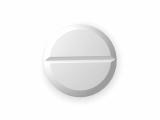- Bestsellers
- Alcoholism
- COVID-19
- Allergy
- Alzheimers
- Anti Fungal
- Anti Viral
- Anti-Depressants
- Antibacterial
- Anti-Inflammatory
- Antibiotics
- Antiparasitic
- Arthritis
- Asthma
- Birth Control
- Blood Pressure
- Cancer
- Cardiovascular
- Cholesterol
- Diabetes
- Diuretics
- Erectile Dysfunction
- Eye Drop
- Gastro Health
- General Health
- Hair Loss
- Hepatitis C Virus (HCV)
- Herbals
- HIV
- Hormones
- Men's ED Packs
- Men's Health
- Mental Illness
- Motion Sickness
- Muscle Relaxant
- Parkinson’s Disease
- Pain Relief
- Quit Smoking
- Skin Care
- Weight Loss
- Women's Health
- Sleeping Aids
- Veterinary Medicines
- Vitamins

Generic Furosemide











Common use
Furosemide is a loop diuretic (water pill) that prevents your body from absorbing too much salt, allowing the salt to instead be passed in your urine.
Furosemide treats fluid retention in people with congestive heart failure, liver disease, or a kidney disorder such as nephrotic syndrome. This medication is also used to treat high blood pressure.
Dosage and direction
Take Furosemide exactly as it was prescribed for you. Do not take the medication in larger amounts, or take it for longer than recommended by your doctor. Follow the directions on your prescription label. Measure liquid medicine with a special dose-measuring spoon or cup, not a regular table spoon. If you do not have a dose-measuring device, ask your pharmacist for one.
Your doctor may occasionally change your dose to make sure you get the best results from this medication.
Precautions
Avoid becoming dehydrated. Follow your doctor's instructions about the type and amount of liquids you should drink while you are taking furosemide. Avoid exposure to sunlight or artificial UV rays (sunlamps or tanning beds). Use a sunscreen (minimum SPF 15) and wear protective clothing if you must be out in the sun.
Contraindications
Before using furosemide, tell your doctor if you have:
kidney disease;
liver disease;
gout;
lupus;
diabetes; or
an allergy to sulfa drugs.
It is not known whether this medication is harmful to an unborn baby. Before taking furosemide, tell your doctor if you are pregnant or plan to become pregnant during treatment. Furosemide can pass into breast milk and may harm a nursing baby. Do not use this medication without telling your doctor if you are breast-feeding a baby.
Possible side effects
Get emergency medical help if you have any of these signs of an allergic reaction: hives; difficulty breathing; swelling of your face, lips, tongue, or throat. Stop using furosemide and call your doctor at once if you have any of these serious side effects:
dry mouth, thirst, nausea, vomiting;
feeling weak, drowsy, restless, or light-headed;
fast or uneven heartbeat;
muscle pain or weakness;
urinating less than usual or not at all;
easy bruising or bleeding, unusual weakness;
a red, blistering, peeling skin rash;
hearing loss; or
nausea, stomach pain, low fever, loss of appetite, dark urine, clay-colored stools, jaundice (yellowing of the skin or eyes).
Less serious Furosemide side effects may include:
diarrhea, constipation, or stomach pain;
headache;
numbness, burning, pain, or tingly feeling;
dizziness; or
blurred vision.
Drug interaction
If you take sucralfate (Carafate), take it at least 2 hours before or after you take Furosemide. Tell your doctor about all the prescription and over-the-counter medications you use. This includes vitamins, minerals, herbal products, and drugs prescribed by other doctors. Do not start using a new medication without telling your doctor.
Missed dose
Furosemide is sometimes used only once, so you may not be on a dosing schedule. If you are using the medication regularly, take the missed dose as soon as you remember. If it is almost time for the next dose, skip the missed dose and wait until your next regularly scheduled dose. Do not take extra medicine to make up the missed dose.
Overdose
Seek emergency medical attention if you think you have used too much of this medicine. Overdose symptoms may include ringing in your ears, loss of appetite, weakness, dizziness, confusion, feeling light-headed, or fainting.
Storage
Store Furosemide at room temperature away from heat, light, and moisture. Furosemide liquid medicine should be used within 60 to 90 days after opening the bottle. Ask your pharmacist how many days your medicine is good for. Throw away any unused liquid after that time has passed.
Disclaimer
We provide only general information about medications which does not cover all directions, possible drug integrations, or precautions. Information at the site cannot be used for self-treatment and self-diagnosis. The specific instructions for a particular patient should be agreed with your health care adviser or doctor in charge of the case. We disclaim reliability of this information and mistakes it could contain. We are not responsible for any direct, indirect, special or other indirect damage as a result of any use of the information on this site and also for consequences of self-treatment.



| Shipping method | Delivery time | Price | |
 Airmail service Delivery Airmail service Delivery |
14-21 days | 10$ | Tracking# available in 4 days |
 Trackable service Delivery Trackable service Delivery |
9-14 days | 30$ | Tracking# available in 2 days |
- Shipping worldwide
- Confidentiality and anonymity guarantee
- Safe and secure
- Discrete looking packages
- Dispatch orders within 24 hours
- 100% success delivery


